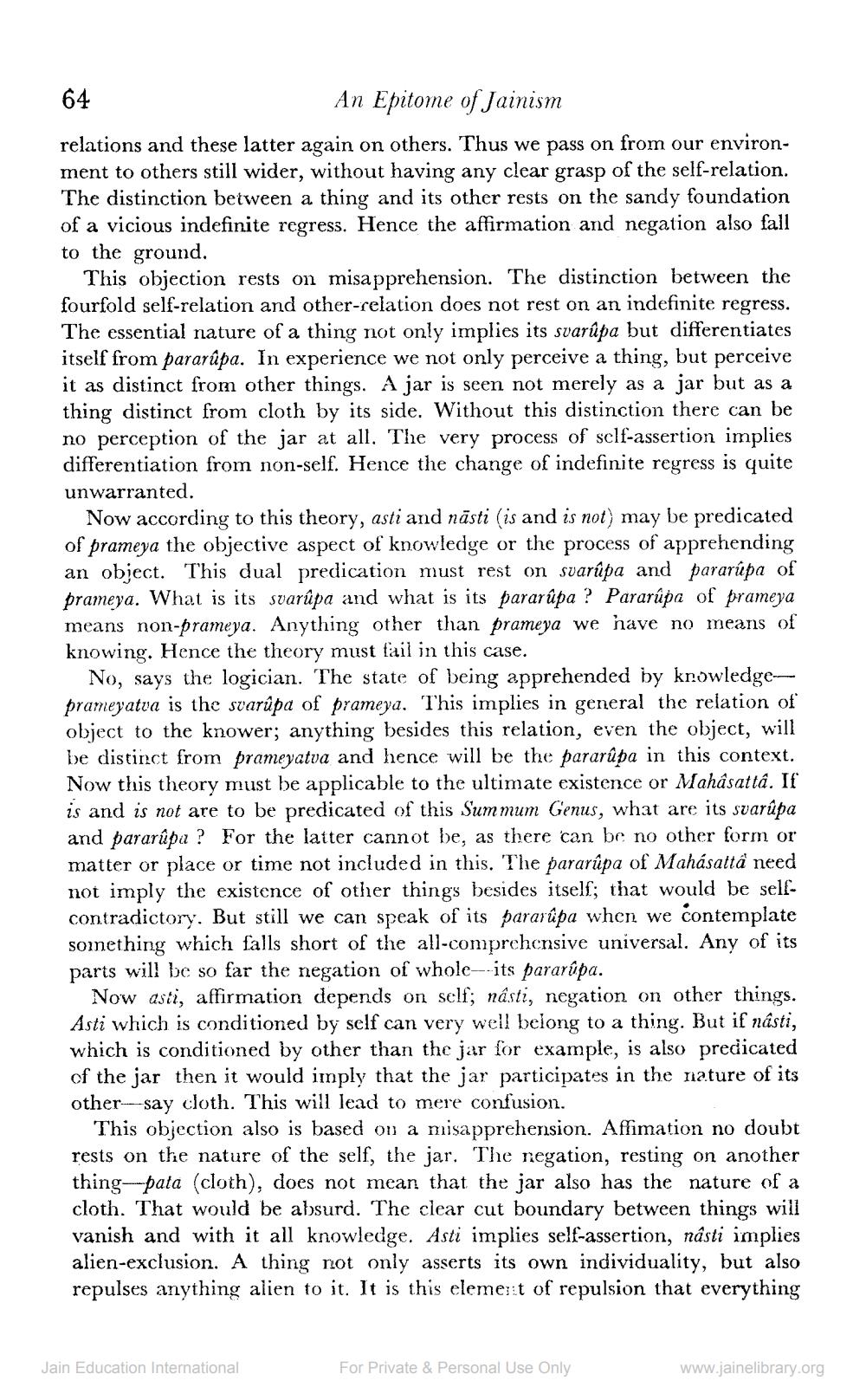________________
64
An Epitome of Jainism
relations and these latter again on others. Thus we pass on from our environment to others still wider, without having any clear grasp of the self-relation. The distinction between a thing and its other rests on the sandy foundation of a vicious indefinite regress. Hence the affirmation and negation also fall to the ground.
This objection rests on misapprehension. The distinction between the fourfold self-relation and other-relation does not rest on an indefinite regress. The essential nature of a thing not only implies its svarûpa but differentiates itself from pararûpa. In experience we not only perceive a thing, but perceive it as distinct from other things. A jar is seen not merely as a jar but as a thing distinct from cloth by its side. Without this distinction there can be no perception of the jar at all. The very process of self-assertion implies differentiation from non-self. Hence the change of indefinite regress is quite unwarranted.
Now according to this theory, asti and nāsti (is and is not) may be predicated of prameya the objective aspect of knowledge or the process of apprehending an object. This dual predication must rest on svarûpa and pararûpa of prameya. What is its svarûpa and what is its pararûpa ? Pararûpa of prameya means non-prameya. Anything other than prameya we have no means of knowing. Hence the theory must fail in this case.
No, says the logician. The state of being apprehended by knowledgeprameyatva is the svarûpa of prameya. This implies in general the relation of object to the knower; anything besides this relation, even the object, will be distinct from prameyatva and hence will be the pararûba in this context. Now this theory must be applicable to the ultimate existence or Mahấsattâ. If is and is not are to be predicated of this Summum Genus, what are its svarûpa and pararûpa ? For the latter cannot be, as there can be no other form or matter or place or time not included in this. The pararûpa of Mahasatta need not imply the existence of other things besides itself; that would be selfcontradictory. But still we can speak of its pararûpa when we contemplate something which falls short of the all-comprehensive universal. Any of its parts will be so far the negation of whole--its pararūpa.
Now asti, affirmation depends on self; nâsti, negation on other things. Asti which is conditioned by self can very well belong to a thing. But if násti, which is conditioned by other than the jar for example, is also predicated of the jar then it would imply that the jar participates in the nature of its other-say cloth. This will lead to mere confusion.
This objection also is based on a misapprehension. Aflimation no doubt rests on the nature of the self, the jar. The negation, resting on another thing-pata (cloth), does not mean that the jar also has the nature of a cloth. That would be absurd. The clear cut boundary between things will vanish and with it all knowledge. Asti implies self-assertion, nâsti implies alien-exclusion. A thing not only asserts its own individuality, but also repulses anything alien to it. It is this element of repulsion that everything
Jain Education International
For Private & Personal Use Only
www.jainelibrary.org




